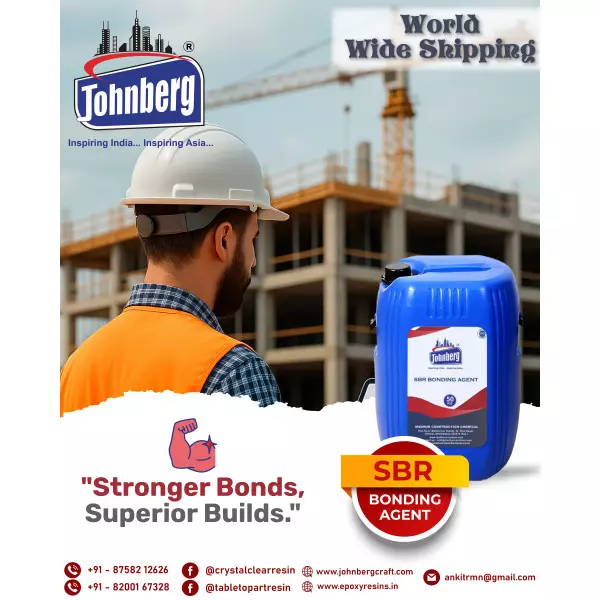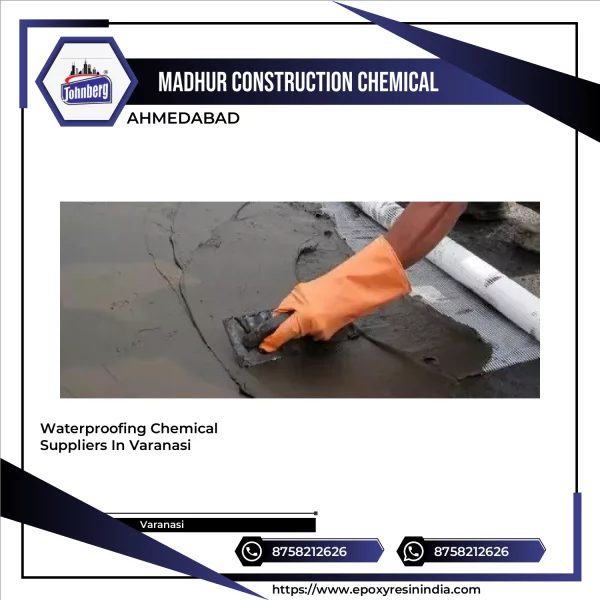- Home
- About Us
- Products
- Resin Furniture
- 3D Epoxy Flooring Service
- Resin Table Top
- Wooden Epoxy Resin Table Top
- Metallic Epoxy Flooring Service
- Conception Chemical Consultants
- Chemical Consultancy For Construction
- Construction Chemical Consultant
- Tile Grout
- Foundation Grout Consultant
- Paver Block Chemical Consultant
- Waterproofing Chemical Consultant
- Epoxy Pigment Consultant
- Heat Reflective Coating
- Water Repellent Coating
- Epoxy Grout
- Chemical Consultant
- Industrial Chemical
- Construction Chemical
- Epoxy Resin
- Epoxy Coating
- Polyester Resin
- Joint Sealants
- Cristal Clear Epoxy Resin And Hardner
- Construction Chemicals
- Polycarboxylate Ether And Liquid
- Solvent Cement
- Tile Protection Sheet
- Water Reducing Superplasticizer
- Epoxy Resin And Hardeners
- Two Component Waterproof Coating
- Epoxy Floor Coatings
- Casting Resin
- Sbr Latex Polymer
- Epoxy Grout Formulations
- Epoxy Resin Tabletops
- Tile Spacers
- Tile Levelling Spacers
- Industrial Night Vision Epoxy Grout
- Sbr Latex
- Johnberg Marble Polishing Liquid
- Acrylic Elastomeric Coating
- Weber Tile Adhesives
- Decorative Arts
- Resinic Crafts
- PU Flexible Tile Adhesive
- Resin Pressed Flowers
- Dry Pressed Flower
- Epoxy Putty
- Resin Furniture
- Services
- Updates
- Gallery
- Contact Us
Waterproofing Chemical Consultant In Bengaluru
Details of Waterproofing Chemical Consultant
Waterproofing chemicals are specialized compounds used to prevent water ingress into buildings, structures, and materials. They are essential in protecting surfaces like concrete, roofs, basements, water tanks, and foundations from water damage, corrosion, and mold growth. Below is a detailed breakdown of the types, applications, and properties of commonly used waterproofing chemicals:
Types of Waterproofing Chemicals
Chemical Type Description & Use
Acrylic-Based Waterproofing Water-based, UV resistant. Used in terraces, balconies, and external walls.
Polyurethane (PU) Highly elastic, durable. Ideal for roofs, terraces, and water tanks.
Bituminous Coating Asphalt-based. Provides excellent adhesion and water resistance. Used in foundations.
Bituminous Membranes Prefabricated rolls. Often applied with torch-on method. Used in roofs & basements.
Cementitious Waterproofing Powder mixed with water. Easy to apply. Common in toilets, bathrooms, and tanks.
Silicone-Based Sealants Flexible, weatherproof. Used for joints, glass facades, and window frames.
Crystalline Waterproofing Reacts with concrete to form crystals that block water. Used in concrete structures.
Epoxy-Based Coatings Two-part chemical. Hard and durable. Ideal for industrial floors and water tanks.
Liquid Rubber Flexible, seamless membrane. Applied by spray or roller. Used in roofs, decks.
Common Applications
Structure/Surface Recommended Chemical
Terraces/Roofs PU coating, bituminous membranes, liquid rubber
Bathrooms/Toilets Cementitious waterproofing, epoxy coatings
Basements Bituminous coating, crystalline waterproofing
Water Tanks Cementitious + epoxy or PU coatings
Expansion Joints PU sealant, silicone sealant
Foundations Bituminous membranes, crystalline systems
Walls Acrylic-based waterproofing paints
Key Properties to Look For
Water resistance / impermeability
UV stability (important for exposed surfaces)
Flexibility and crack bridging
Chemical resistance
Adhesion to various substrates
Breathability (some allow vapor but not water)
Tips for Choosing the Right Product
Understand the water exposure (occasional splash vs. constant immersion).
Assess the substrate condition (cracked, porous, new or old concrete).
Consider surface movement (choose flexible solutions for expansion joints).
Check environmental exposure (sunlight, chemical exposure).
Offered Product
Waterproofing Chemical Consultant
Packaging Size20kgAdhesion To ConcreteExcellentType Of Service ProviderIndividual Consultant, CompanyMode Of ServiceOnlineLocationIndiaCategoryWaterproofing CoatingGrade StandardAnalytical GradeBrandJohnbergwe Provide Technology To Provide Manufecture Waterproofing Chemical, And Construction Chemical. ... Read moreWaterproofing Chemical Dealers In Ahmedabad
We Are A Well Known Name Involved In Manufacturing And Supplying An Extensive Range Of Waterproofing Chemical. We Manufacture This Chemical By Utilizing The Optimum Quality Materials Under The Guidance Of Our Adroit Professionals. To Fulfill The Various Needs Of The Clients, Provided Range Is Available In Various Specifications. This Range Is Much-admired By Large Number Of Clients For Its Superior Quality And High Stability. We Are Supported By Competent Quality Controllers, Who Carefully Test Continue
Waterproof Epoxy Resin
Waterproofing Epoxy Resin Involves Using It As A Protective Barrier To Keep Water From Penetrating Surfaces, Such As Wood, Metal, Or Concrete. Epoxy Resin Is Naturally Resistant To Water, Making It A Popular Choice For Applications Like Sealing Boats, Countertops, And Even Art Projects. Here’s How You Can Use Epoxy Resin For Waterproofing:Choose The Right Epoxy Resin: Make Sure You Use A High-quality, Marine-grade, Or Waterproof Epoxy Resin Designed For The Purpose. Some Epoxies Are Spec Continue
Waterproofing Chemical Suppliers In Varanasi
Our Range Of Waterproofing Chemical Solutions Is Crafted Through Extensive Testing And Cutting-edge Chemical Processing Techniques. Each Product Is Specifically Formulated To Shield Structures From Moisture, Harsh Weather, And Long-term Damage, Ensuring Reliable Performance Thanks To Our Efficient Manufacturing Process.Construction Professionals And Infrastructure Projects Turn To Our Waterproofing Chemicals Because We Deliver Robust Solutions Straight From Our Production Lines. With A Solid L Continue




